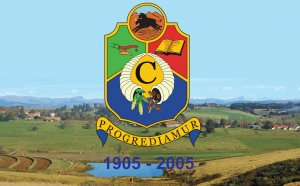
Business Culture in South Africa
 Welcome to our guide to South Africa. This is useful for anyone researching South African culture, customs, manners, etiquette, values and wanting to understand the people better. You may be going to South Africaon business, for a visit or even hosting South African colleagues or clients in your own country. Remember this is only a very basic level introduction and is not meant to stereotype all South Africans you may meet!
Welcome to our guide to South Africa. This is useful for anyone researching South African culture, customs, manners, etiquette, values and wanting to understand the people better. You may be going to South Africaon business, for a visit or even hosting South African colleagues or clients in your own country. Remember this is only a very basic level introduction and is not meant to stereotype all South Africans you may meet!
Facts and Statistics
Location: Southern most tip of Africa, bordering Botswana 1, 840 km, Lesotho 909 km,
Mozambique 491 km, Namibia 967 km, Swaziland 430 km, Zimbabwe 225 km
Capital: Pretoria
Climate: mostly semiarid; subtropical along east coast; sunny days, cool nights
Population: 42, 718, 530
Ethnic Make-up: black 75.2%, white 13.6%, Coloured 8.6%, Indian 2.6%
Religions: Christian 68% (includes most whites and Coloreds, about 60% of blacks and about
40% of Indians), Muslim 2%, Hindu 1.5% (60% of Indians), indigenous beliefs and animist 28.5%
 Government: republic
Government: republic
Languages in South Africa
South Africa has 11 official languages. English is the language of administration and is spoken throughout the country. The other official languages are: Afrikaans, Ndebele, Northern Sotho, Southern Sotho, Swazi, Tsongo, Tswana, Venda, Xhosa and Zulu.
South African Society & Culture
The Rainbow NationSouth Africa is one of the most multicultural countries in the world. In urban areas many different ethnic groups will make up the population. In addition to the indigenous black peoples of South Africa colonialism and immigration have brought in white Europeans, Indians, Indo-Malays, Chinese and many more.
As such it is difficult to generalise at all on South African etiquettes and culture due to the diversity.
The Family in South Africa
- The basic unit of South African society is the family, which includes the nuclear family and the extended family or tribe.
- In traditional African society, the tribe is the most important community as it is the equivalent of a nation. The tribe provides both emotional and financial security in much the same way the nuclear family does to white or coloured South Africans.
- The coloured and more traditional Afrikaans cultures consider their extended family to be almost as important as their nuclear family, while the English-speaking white community places more emphasis on the nuclear family.
- The nuclear family is the ultimate basis of the tribe. The tribal and family units are being disrupted by changes in the economic reorganization of the country
- As more people move into the urban areas, they attempt to maintain familial ties, including providing financial support to family members who have remained in the village.
The Rural/Urban Dichotomy
RELATED VIDEO



Share this Post
Related posts
Agricultural College in South Africa
Elsenburg Agricultural Training Institute was established in 1898 and was the first centre for agricultural training in Africa…
Read MoreAgricultural Engineering in South Africa
An excellent agricultural engineering researcher who is also helping to build Africa s human resource capacity – that s Prof…
Read More










